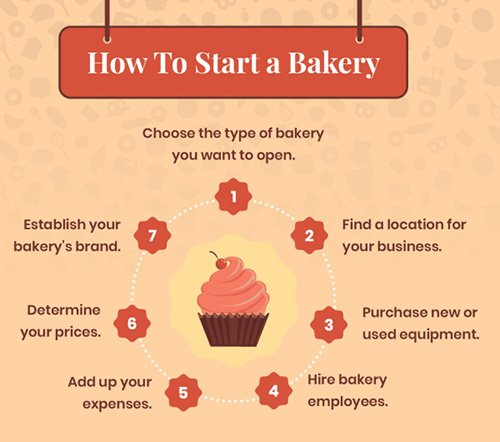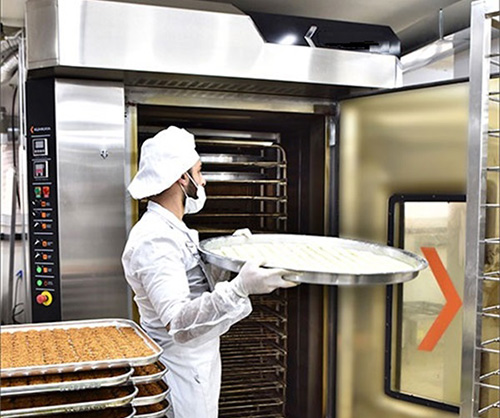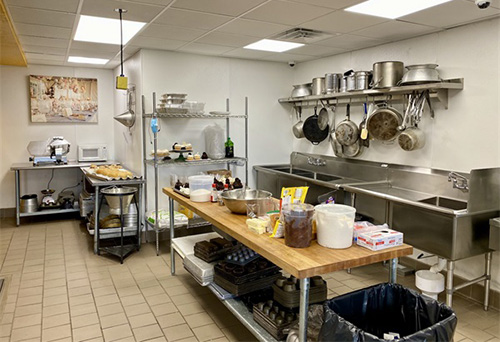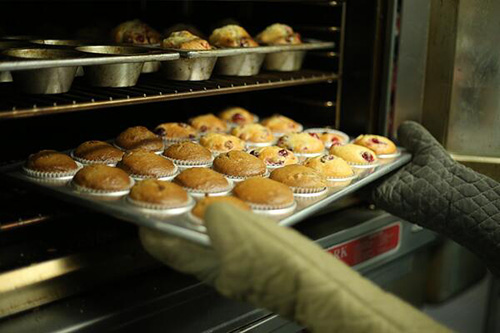Opening a bakery can be a rewarding and lucrative business, but it also requires a significant upfront investment. The process of buying or leasing property, renting equipment, hiring employees, obtaining permits and other upfront costs can be very important. You will also need to identify a location and consider costs such as rent and utilities.

Types of bakery
Not all bakeries are created equal. Depending on the type of bakery you decide to open, you may need to obtain different licenses. For example, if you plan to open a commercial bakery that produces products for resale, you will need to obtain a different set of licenses than you would to operate a nonprofit community bakery. The same is true for opening a wholesale bakery and a convenience bakery.
When you decide to get started, you have four basic styles of bakery to choose from. They all have pros and cons, so you should take some time to consider which is the best choice for you.
Counter-style bakery
This format is the most typical and recognizable format for bakeries and it has its benefits. If you are only offering a counter where customers can order, the space required in front of the bakery is very small. Often, no dining space is too small, which allows this type of bakery to remain a lean and efficient operation. But this format does limit your options for serving food and keeping customers on site, who may order more food and drinks over time.

Food Truck Bakery
Having a food truck is a cost-effective place to open a bakery and can help you reach a variety of customers who wouldn't normally see your products. Take your baked goods with you and park your food truck at street fairs, offices and special events. You won't have room to bake much in your truck. However, you can easily fill your truck with baked goods that you make in your home or commercial kitchen space and bring them to your location.
Bakery and Cafe Mix
This option provides ample seating for customers and, if you want to expand your bakery-only operation, the space you need to serve meals. You can still add seating if you want to encourage customers to hang out in your business. You may want to add coffee or tea to the menu to entice them to stay longer. If you offer comfortable seating and free Wi-Fi, you're likely to have success with the working crowd.

Home Bakery
Keep it simple and opt for a home based bakery. You'll need less start-up capital and can easily sell your goods online, at local farmers' markets and even in food services. You can even strike a deal with a local store or cafe to sell your goods at their location by offering a cut of the profits.

How to purchase bakery equipment ?
Equipment is the second biggest startup expense for bakery owners behind rent. No matter what baked goods you sell, expect to buy a pastry case, commercial oven and refrigerator. Many bakery owners buy used equipment at the start, but it may be worthwhile to buy some things brand new.
Work benches, mixers and dishwashers are also crucial in a bakery. Most cities have local vendors that sell new and used equipment for food establishments.You could speak with the staff at a recycled equipment store or vendor in your area to learn what appliances your bakery needs.
Bakery business equipment checklist
Sheet Pan Racks
Food Service Permits and Licenses
Opening any food service business requires applying for a series of permits and licenses. These permits and licenses are an important part of your business and you need to make sure they are up to date and available to any health inspectors or state licensing agents who visit your establishment.
Choose the appropriate oven and baking tools and commercial kitchen equipment from our INEO company and start your bakery business journey!
Keywords: bakery equipment
Originally published 17 Aug 2022, updated 17 Aug 2022.
Get a Project Quote
Our representative will contact you soon